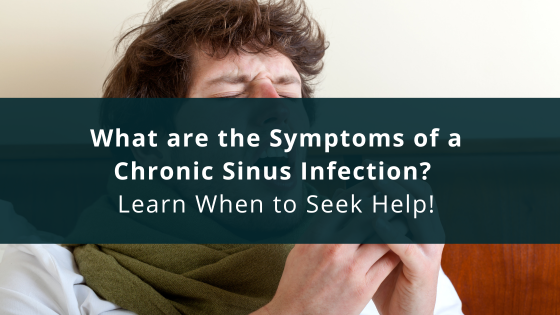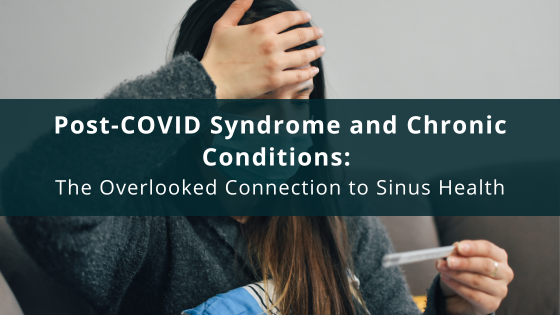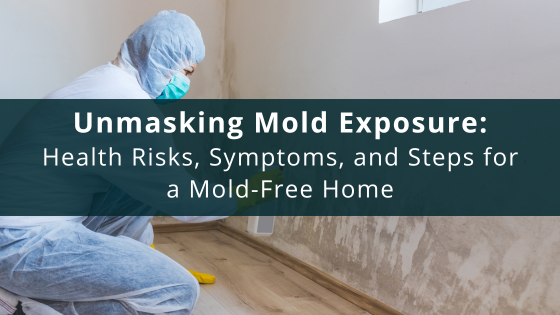Chronic sinus infections are more than a bad cold; they are a less acute issue that can affect daily life significantly. The pains include symptoms such as nasal congestion and pain in the face, headache, and reduced senses of smell and taste, and it lasts more than 12 weeks.
Chronic sinusitis usually comes along with afflicted underlying structures, allergies, or persistent inflammation. While one typically heals fast with an acute sinus infection, chronic sinus infections create annoying nuisances.
It is really important to be aware of the signs of chronic sinus infection so as to seek treatment in a timely fashion and to prevent the development of possible subsequent problems such as blockage in the sinuses or secondary infections. The struggles vary from general feelings of persistent fatigue to post-nasal drip and, more serious, difficulty breathing. Knowing the symptoms is the first step to freeing oneself from these suffering conditions.
This blog will further explain the biggest symptoms of chronic sinus infection, how they vary from acute cases, and when to see a doctor to help.
What is a Chronic Sinus Infection? All in All, About Chronic Sinus Infection
Sinusitis which is defined as having inflamed and swollen sinuses for more than twelve weeks even with treatment is said to be chronic; in fact, it is an ongoing inflammatory state. Unlike acute sinusitis, which occurs as a result of a cold or a temporary infection, this type of illness lasts and exerts severe effects on a person’s life. Otherwise termed chronic sinus infections, they may stretch for too long and can take a toll on the quality of life for many persons.
If they haven’t deviated septums, nasal polyps, allergies, or recurrent infections, that may cause them to develop joint factors. Environmental irritants include smoke and pollutants. Immune system deficiencies could also provoke them. Nasal congestion, pressure around the face, headache, post-nasal drip, and short breath are what the patient feels throughout the day. Some even complained about lethargy and lower smell or taste, which might also interfere with daily living and well-being.
A lot of misunderstanding surrounds chronic sinus infections. Personal understanding of the pathology itself, as well as the potential for delayed therapy in treating chronic sinus disease, has made it complicated. In this case, all the patient needs is to be properly diagnosed by a health care provider, an event that involves imaging or allergy testing, for great and targeted relief. Proper medication, lifestyle changes, and surgical interventions in extreme cases can then offer promising long-term solutions to effectively control the symptoms.
Key Takeaways: Why Recognizing Chronic Sinus Symptoms is Crucial
- Chronic sinusitis can create a drastic and negative effect on the daily quality of life, essentially ongoing pain and disruption of daily living activities.
- Identifying symptoms such as a continual stuffy nose, facial pain, and lost smell facilitates proper diagnosis and treatment.
- Early detection avoids subsequent complications like blockages in the nose, secondary infections, or permanent changes in the nasal tissues.
- Chronic sinusitis is almost inevitably associated with acute sinus infections, and recognizing the difference allows the proper treatment to be instituted and avoids the use of unnecessary medications or delays.
- Productivity and overall health may dwindle as a result of chronic sinusitis pain and fatigue.
- Upon understanding these symptoms, self-management of the condition becomes part of lifestyle change, including medical intervention.
- Early medical attention from ENTs or medical specialists may yield an efficient and effective form of lasting relief.
- Treatment at the right time can prevent surgery and promote quicker recovery.
How Chronic Sinus Symptoms Differ from Acute Sinus Infections
Symptoms of chronic sinusitis and acute sinusitis are similar however, they are completely different with respect to duration, degree of severity, and causes. Generally, acute sinusitis is often caused by a viral infection between a cold and not more than four weeks. Symptoms may include nasal congestion, facial pain, and headaches, which are somewhat intense but usually go away with treatment or even just rest.
On the other hand, chronic sinus infection persists for more than 12 weeks and may recur even after treatment. The symptoms in chronic cases, such as nasal blockage, facial pressure, and post-nasal drainage, are relatively milder but continuous, leading to discomfort that spans over long periods. Unlike an acute case of sinusitis, a chronic case is usually associated with structural nasal problems, allergies, or delayed inflammation rather than just transient infections.
When Should You See a Doctor? – Find Out Warning Signs!
It leads to severe health consequences. Hence, chronic sinus infections should not remain untreated. Knowing when to consult a doctor becomes crucial to preventing complications and achieving good relief. The following are the major telltale signs that signal the need for health care in chronic sinusitis.
Symptoms Persisting Beyond 12 Weeks
Nasal blockage, along with facial pressure and headache for more than 3 months, is called chronic sinusitis. This means that even over-the-counter medication cannot help the condition anymore; professional care is warranted.
Severe Facial Pain and Swelling
In extreme pain, swelling, or redness around your eyes, forehead, or cheeks, think that it can just complicate the infection and heavily block the sinuses. Such conditions should never be ignored.
Frequent or Recurrent Infections
Having more than one sinus infection in a year may point to some underlying reason in which a specialist should take a closer look into the possibilities of nasal polyps, allergies, or some deficiency of the immune system.
Managing Chronic Sinus Symptoms: Medical Treatments and Lifestyle Tips
Lifestyle changes are quite crucial for the management of chronic sinusitis. The use of a humidifier to keep moist air can prevent dry nasal passages and congestion. Irrigating the nose with saline solution frequently would clear out irritants and allergens and less inflammation. Avoidance of trigger factors such as smoke, pollution, and allergens will help reduce symptom flare-ups.
Eating a healthy and well-balanced diet full of anti-inflammatory foods and drinking lots of fresh water help maintain the body’s healthy fighting power. The use of yoga and meditation effectively treats stress-induced situations and thereby helps with chronic sinusitis. Consulting a health expert is advisable, for they will ensure personalized treatment by combining both medicine and lifestyle changes that will help relieve symptoms and improve overall well-being.
Bottom Line: Take Charge of Your Sinus Health Early
Chronic sinusitis can really disrupt a person’s life and can be much more serious sometimes. Signs that make one suspicious, such as very protracted nasal blockage, facial pressure, or loss of smell, are the ones that need to be looked into in a timely manner by medical caregivers. Such measures allow not only relief but also prevention of permanent damage to the sinuses by pursuing early treatment.
A person can join their medical intervention with certain lifestyle changes such as saline rinses, avoiding certain triggers, and hydration so as to achieve improved health in his or her sinuses.







